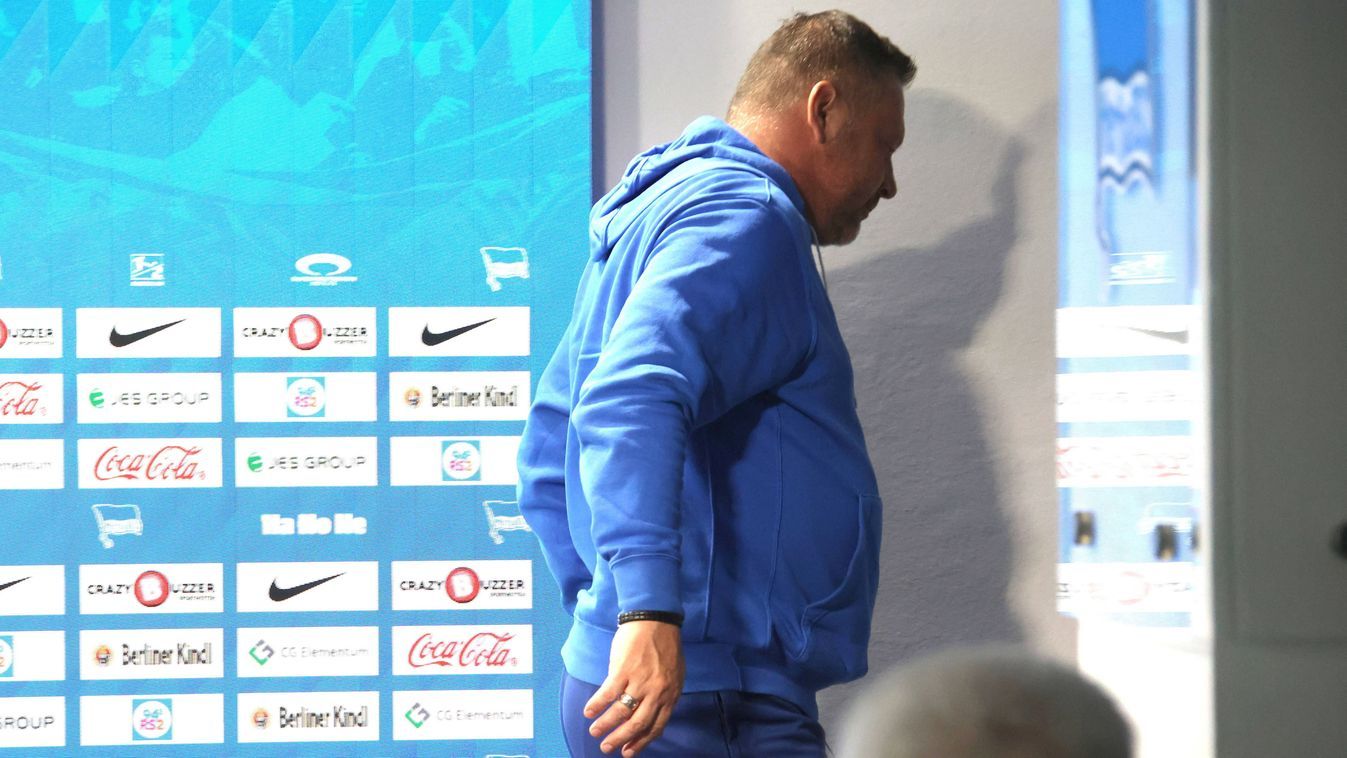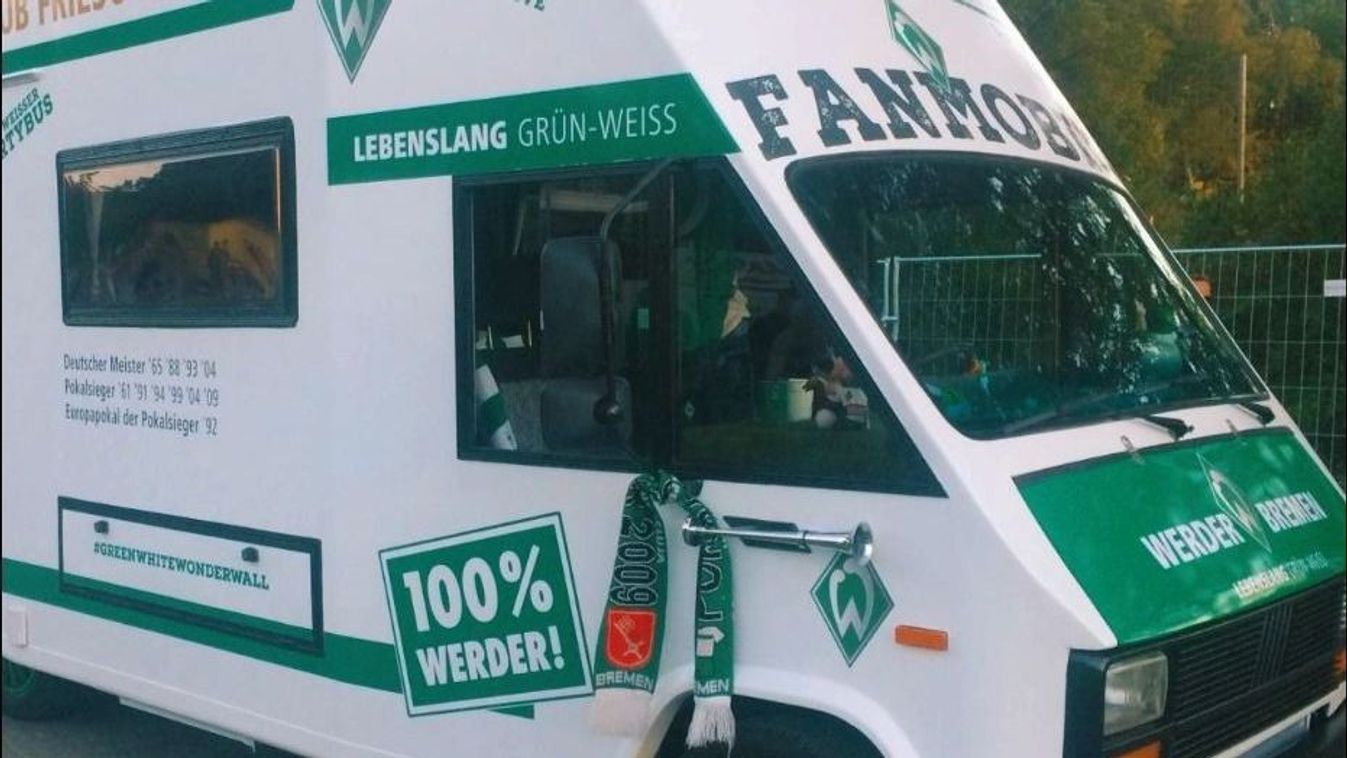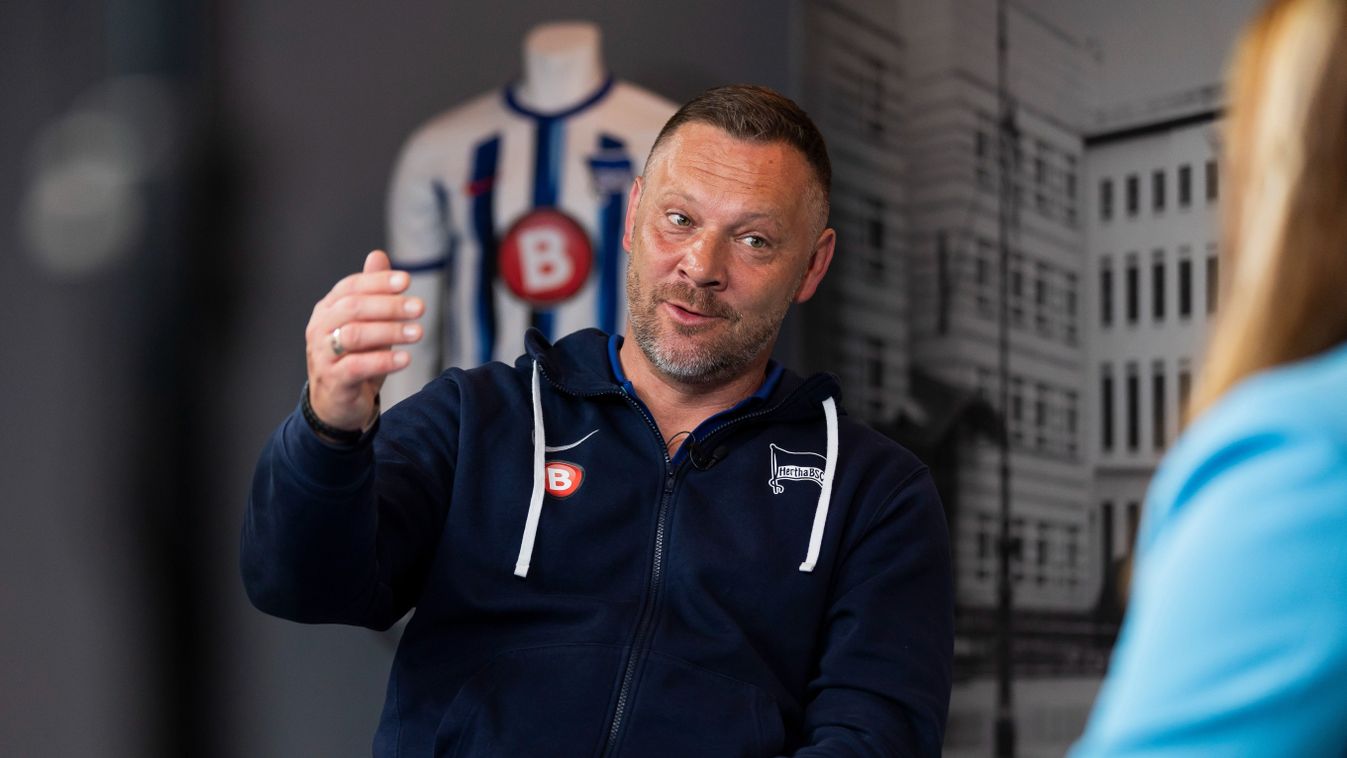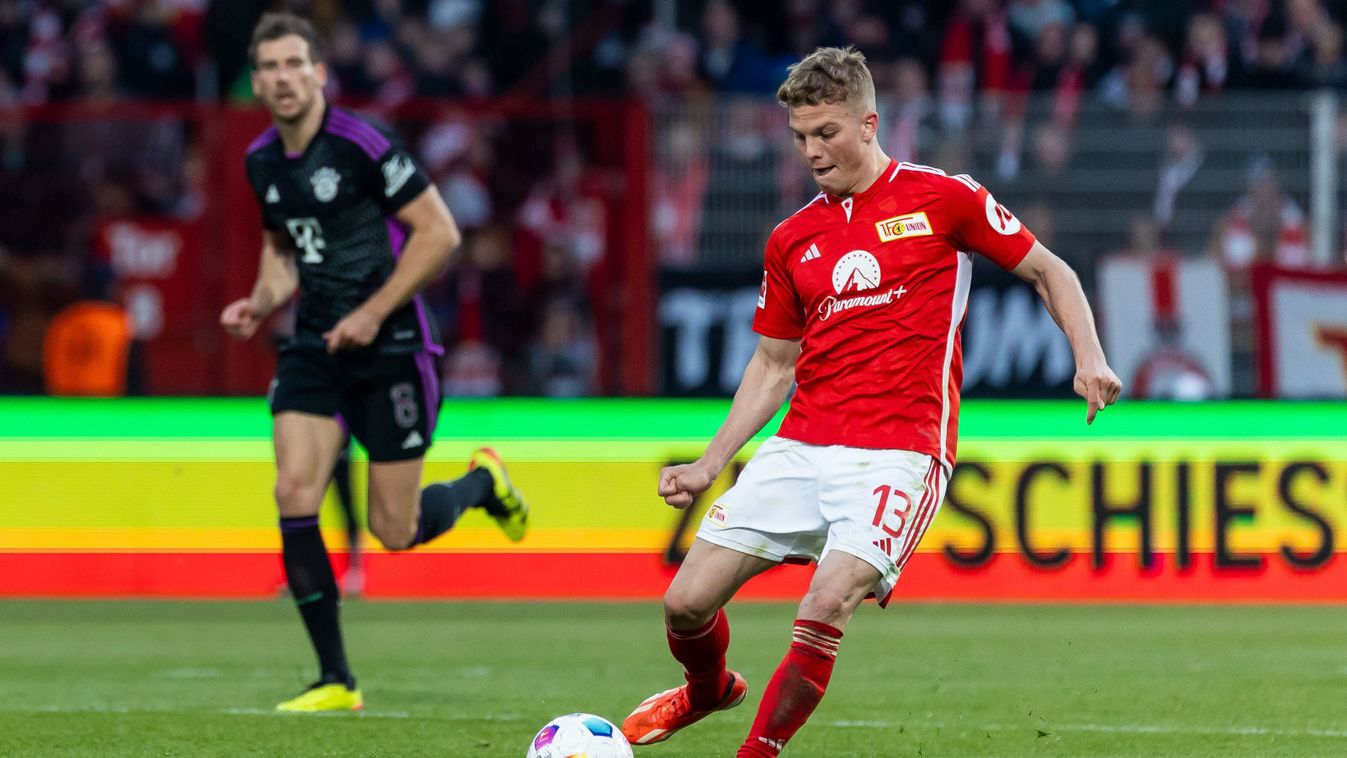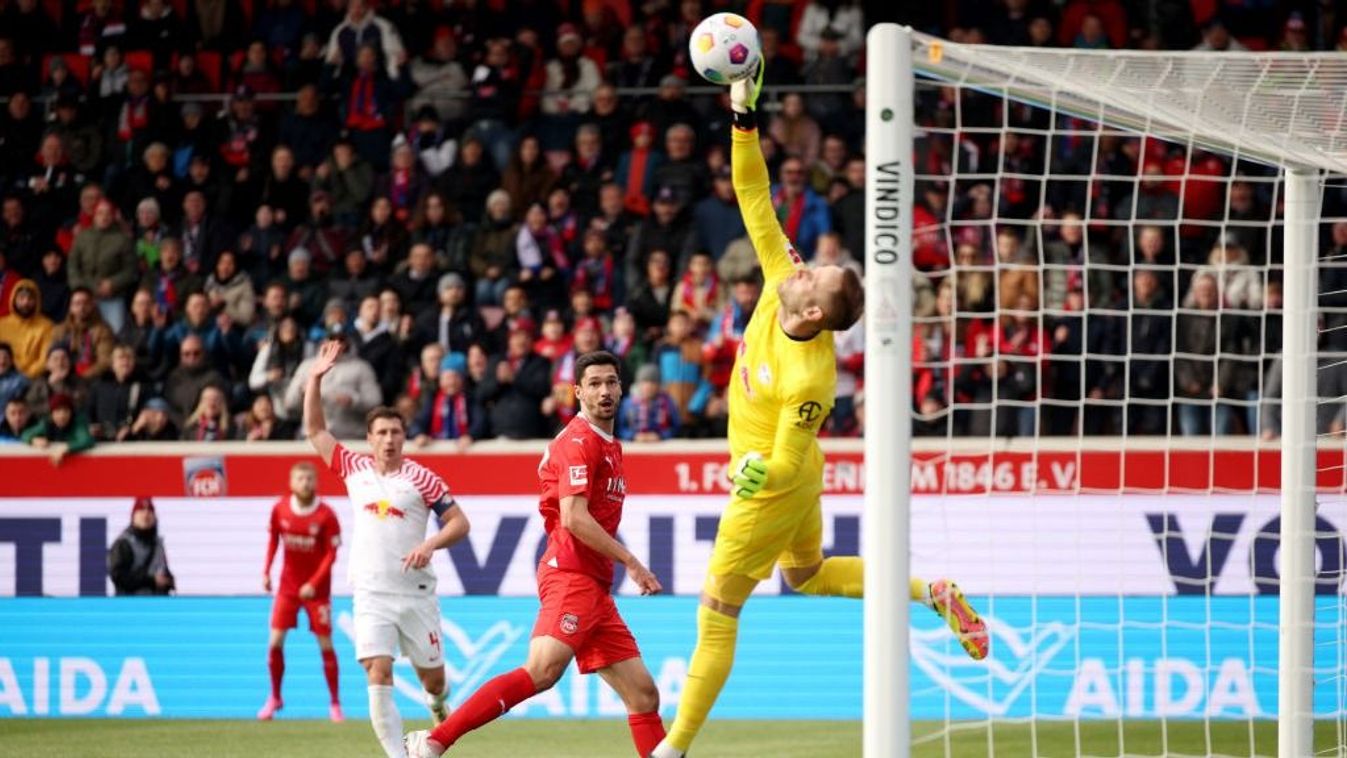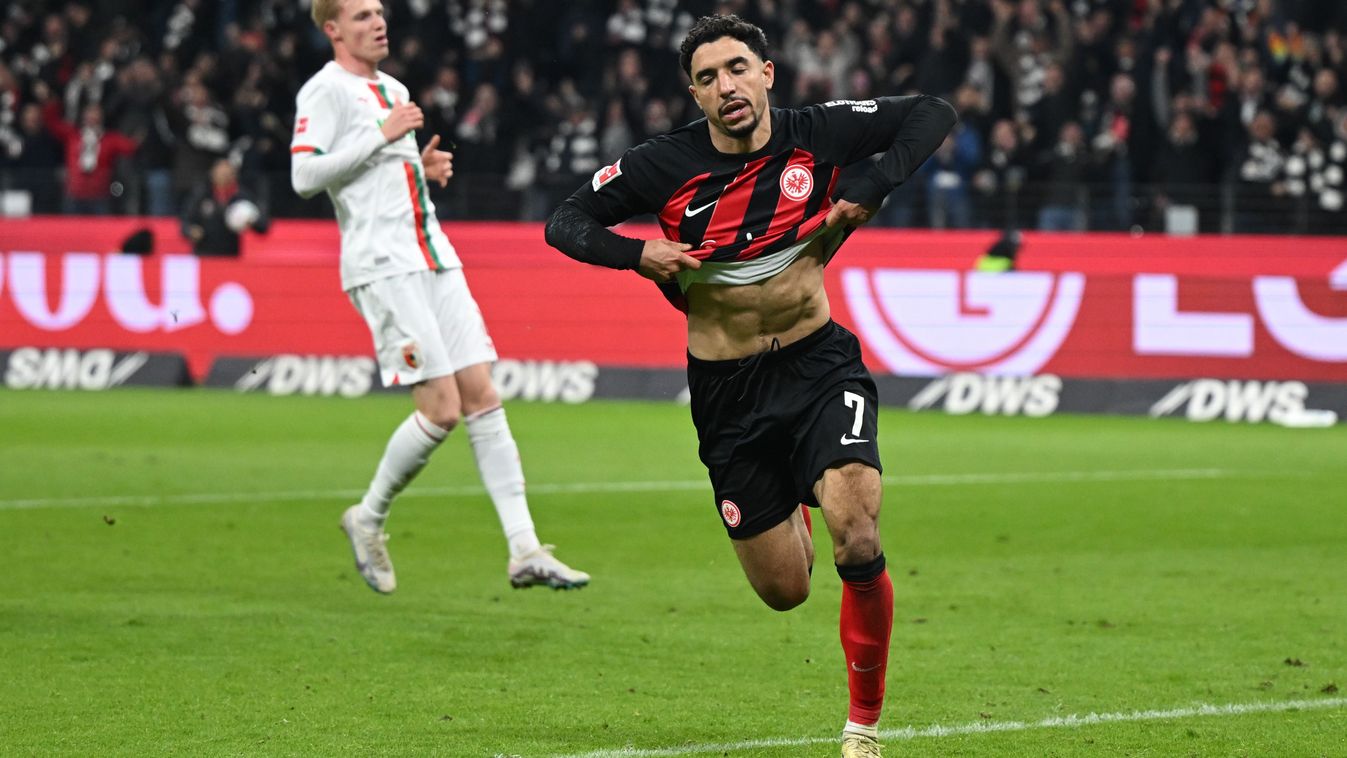Hertha spent 100 million Euros more and yet performed worse without Dárdai
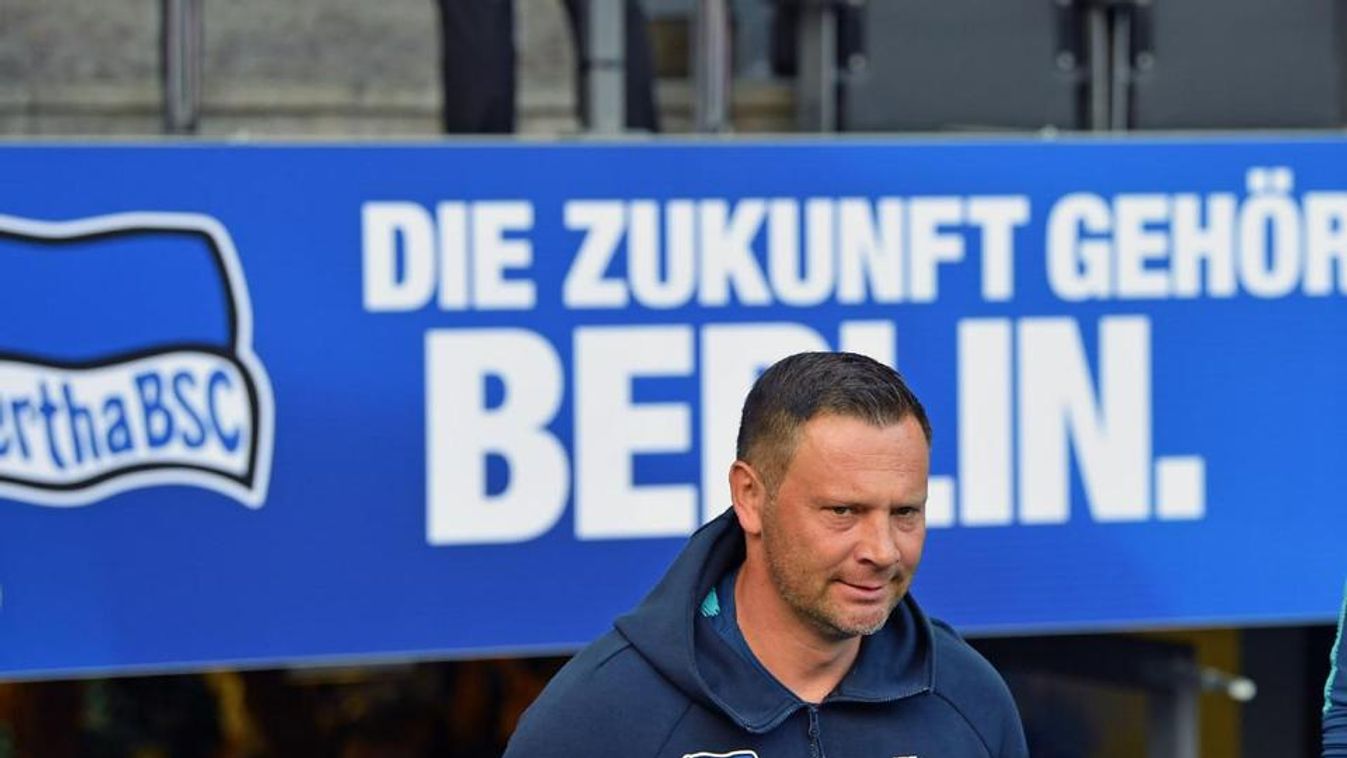
„Dárdai was lucky not to renew his contract. We'll find out now how good of a coach he is. On one hand, we'll see what the team can do with another coach, and on the other hand, what Dárdai can do on another (hopefully stronger) team's bench,” commented a fan in 2019 when Hertha announced that Pál Dárdai will not continue his coaching career with the senior team from the 2019-2020 season. Two years haven't even passed, and the Hungarian coach is already back as the Berlin team's trainer. After his departure, he didn't take on other senior team roles, but returned to Hertha's youth team.
The fact that Hertha is on the edge of falling out from the League again, and Dárdai has been asked to train the team once more, means that he didn't do a bad job when he took over them from Jos Luhakay after three defeats in February 2015. At the time, he kept the team in the League first, then led them to Europa League. It's worth comparing the Dárdai era with the year and a half afterwards during which Bruno Labbadia, who was fired on Sunday, was the fourth coach.
PÁL DÁRDAI LED A MORE SUCCESSFUL TEAM EVEN WITH A SMALLER BUDGET
The first and perhaps the most important indicator is the points earned. If all matches are put into a three-point system, then Hertha earned 237 points with Dárdai in 172 matches that is equivalent to a 46-percent performance. With Labbadia, who has played the most games of 28 after Dárdai, this number was 35.7 percent, while with his substitute Alexander Nouri for four games, the number went up a little to 41.6, and with both Jürgen Klinsmann and Ante Covic, the performance was 40 percent each. Thus, it can be shown in percentages that Hertha has performed the best with Pál Dárdai in the past six years.
Regarding the rankings, in Dárdai's first full season, the team finished in 7th, then 6th, 10th and 11th place in the Bundesliga, and they reached the German Cup semifinals in 2016. In the first season following Dárdai's leave, with the foursome of Covic, Klismann, Nouri and Labbadia, the team finished in 10th, and is in 14th place now. In the Cup, the goal was to make it to the top 16 which they achieved.
If statistics only are taken seriously, we can say that there's no huge difference between Dárdai's era and the period afterwards, and the coaches after him could've achieved better results if they'd been given more time. In the meantime, though, the club went through a big change. Last fall, co-founder of international investment company Sapinda Group, Lars Windhorst acquired 49.9 percent in club shares after investing 224 million Euros into it. Then, with another 115 million Euros, he earned a 66.6 percent stake with the unconcealed goal of making Hertha a topflight team.
During Dárdai's lead, the Berlin club was clearly part of the second half of the German league in terms of budget. This is shown by the fact that during the Hungarian coach's period, the club signed on with new players worth 44 million Euros over four years, whereas this number has been at 144.2 million Euros just over a year and a half. Last season, French Lucas Tousart from Lyon and Polish Krzysztof Piatek from Milan were acquired for 25 and 24 million Euros respectively. These two combined already cost more than all footballers signed on during the Dárai period. Estimated by transfermarkt.de, the total value of the squad is a club-record of 252 million Euros which is the sixth highest in the German Bundesliga after Bayern München, Dortmund, Leipzig, Leverkusen and Mönchengladbach.
In all respect, Hertha wants to compete with these five clubs, but in the past year and a half, they have lost eight times, and only won twice, both time against Leverkusen. On the other hand, Dárdai's team won against all of them at least once – three times each against Mönchengladbach and Leverkusen – earning 34 points in 44 games. That's 25.7 percent of points earned compared to the 23 percent in the past 1.5 years. So, despite the current squad is more valuable, Dárdai's Hertha was somewhat more successful than the five top teams with the largest budgets.
| Matches | Win | Draw | Loss | Goal diff. | Performance (points in percentage) | |
| Bruno Labbadia | 28 | 8 | 6 | 14 | 44–48 | 35.7% |
| Alexander Nouri | 4 | 1 | 2 | 1 | 7–11 | 41.6% |
| Jürgen Klinsmann | 10 | 3 | 3 | 4 | 10–15 | 40% |
| Ante Covic | 14 | 5 | 2 | 7 | 30–33 | 40% |
| PÁL DÁRDAI | 172 | 65 | 42 | 65 | 226–237 | 46% |
THE DÁRDAI SECRET – PUT THE DEFENSE TOGETHER, AND FOUND COMMON GROUND WITH THE KEY PLAYERS
While looking at the numbers, it's worth asking what Dárdai's secret was, how he was more successful even with a statistically less valuable team. One of the keys, which we've also seen with the Hungarian national team, is that he organized the team's defense excellently. During his period, Hertha received an average of 1.37 goals per game, which is lesser than all his successors. With Nouri, the average was 2.75, it was 2.36 with Covic, and the number went down to 1.71 with Labbadia while with Klinsmann, the number was 1.5.
| When Pál Dárdai first worked as head coach of Hertha, in April 2018, his oldest son Pál Dárdai Jr., who is known in German and Hungarian media as Palkó to be distinguished from his father, made his debut in the Bundesliga under his lead. In January 2020 he signed on with Székesfehérvár. Now, his middle son, 18-year-old Márton is a member of the Berlin club's senior squad. In the last six month, Pál Dárdai trained his youngest son, Bence in Hertha's U16 team. |
The other key was that he could find common ground with the players he wanted to build the team on, who didn’t want to leave Hertha because they wanted to work with him, and they believed in him. This probably contributed to the fact that since Jürgen Röber, who left in 2007 after 2228 days and 254 matches, no one has managed Hertha for as long as Pál Dárdai did between 2015 and 2019 for 1606 days and 172 matches. From his first game, a 2-0 win over Mainz on February 7, 2015, Thomas Kraft, Marvin Plattenhardt, Peter Pekarík, Per Ciljan Skjelbred and Fabian Lustenberger were still at the club when Dárdai left. However, now only defender Planntenhardt, who is currently injured, remains in the club.
Hertha didn't sign on with many players during Dárdai's period, but the Hungarian coach selected them effectively. In Summer 2015 Dárdai built Czech midfielder Vladimír Darida into the team and has been a key player ever since. The same applies to defender Niklas Stark too. Left back Mitchell Weiser who transferred from Munich for free and signed on with Leverkusen for 12 million Euros and Maximilian Mittelstädt became top players under Dárdai's guidance. Austrian midfielder Valentino Lazaro also improved a lot when at Hertha and got signed on with Italian Intern for 17 million Euros. Salomon Kalou of Ivory Coast and Bosnian national team player Vedad Ibišević are Dárdai's two new “discoveries.”
Previously at Chelsea, Kalou was already 30 years old when started working with Dárdai. He scored six goals only in the first season, then he earned a total of 41 in the following four years. Ibišević was already 31 when Dárdai asked him to sign on with Hertha despite not scoring a single goal and not playing much due to injury at Stuttgart for a year and half prior. Yet, he played 126 games, scored 45 times, and even became team captain of Dárdai's team. After Dárdai's leave, both Kalou and Ibišević stayed for a season only, but neither could play a decisive role under the guidance of the new coach.
| With Dárdai | After Dárdai | |
| Bayern München | 10 matches/ 6 points | 3/1 |
| Bayer Leverkusen | 8/9 | 3/7 |
| Dortmund | 11/7 | 3/0 |
| Leipzig | 6/3 | 3/1 |
| Mönchengladbach | 9/9 | 3/2 |
BRING THE CHALLENGING SECOND ERA ON
The biggest challenge of the second Dárdai era may be that the coach has to compromise with the overpriced players compared to their performance. Also, he wasn't the one who chose them, and wasn't the one who gave them the opportunity to play there, so they won't necessarily go through fire and water for him as opposed to Kalou and Ibišević. There won't be a problem with his son Márton Dárdai, of course, who isn't yet available due to injury, but with Krzysztof Piatek of a record transfer who only scored four goals in 18 games, or with midfielder Mattéo Guendouzi, on loan from Arsenal, who was on the field for the last three lost games but couldn't contribute anything to the team.
Of the team Dárdai worked with in 2016, only nine players remined the same, but not all of them are considered key players as they haven't played much recently. Moreover, Hertha faces an extremely difficult series of matches as four out of the five opponents – Frankfurt (guest), Bayern München (home), Stuttgart (guest), Leipzig (home), Wolfsburg (guest) – are in the top six positions in rankings, so they all fight for the podium.
However, Dárdai has an advantage over the trainers who have succeeded him since 2019. Lother Matthäus has recently said that “for him, this club isn't just an opportunity or a step in his career. Hertha is his life, and if he cannot make them stand on their feet, then nobody else can...”
| ||||||||||||
| 1. Bayern München | 18 | 13 | 3 | 2 | 53–25 | +28 | 42 |
| 2. RB Leipzig | 18 | 10 | 5 | 3 | 31–17 | +14 | 35 |
| 3. Bayer Leverkusen | 18 | 9 | 5 | 4 | 32–18 | +14 | 32 |
| 4. Wolfsburg | 18 | 8 | 8 | 2 | 27–19 | +8 | 32 |
| 5. Mönchengladbach | 18 | 8 | 7 | 3 | 35–28 | +7 | 31 |
| 6. Eintracht Frankfurt | 18 | 7 | 9 | 2 | 35–27 | +8 | 30 |
| 7. Borussia Dortmund | 18 | 9 | 2 | 7 | 35–26 | +9 | 29 |
| 8. Union Berlin | 18 | 7 | 7 | 4 | 33–23 | +10 | 28 |
| 9. Freiburg | 18 | 7 | 6 | 5 | 33–29 | +4 | 27 |
| 10. VfB Stuttgart | 18 | 5 | 7 | 6 | 33–29 | +4 | 22 |
| 11. Hoffenheim | 18 | 6 | 4 | 8 | 28–30 | –2 | 22 |
| 12. Augsburg | 18 | 6 | 4 | 8 | 19–27 | –8 | 22 |
| 13. Werder Bremen | 18 | 5 | 6 | 7 | 23–26 | –3 | 21 |
| 14. Hertha | 18 | 4 | 5 | 9 | 24–32 | –8 | 17 |
| 15. Arminia Bielefeld | 18 | 5 | 2 | 11 | 14–29 | –15 | 17 |
| 16. 1. FC Köln | 18 | 3 | 6 | 9 | 15–31 | –16 | 15 |
| 17. Mainz | 18 | 2 | 4 | 12 | 18–38 | –20 | 10 |
| 18. Schalke | 18 | 1 | 4 | 13 | 14–48 | –34 | 7 |
(Translated by Vanda Orosz)
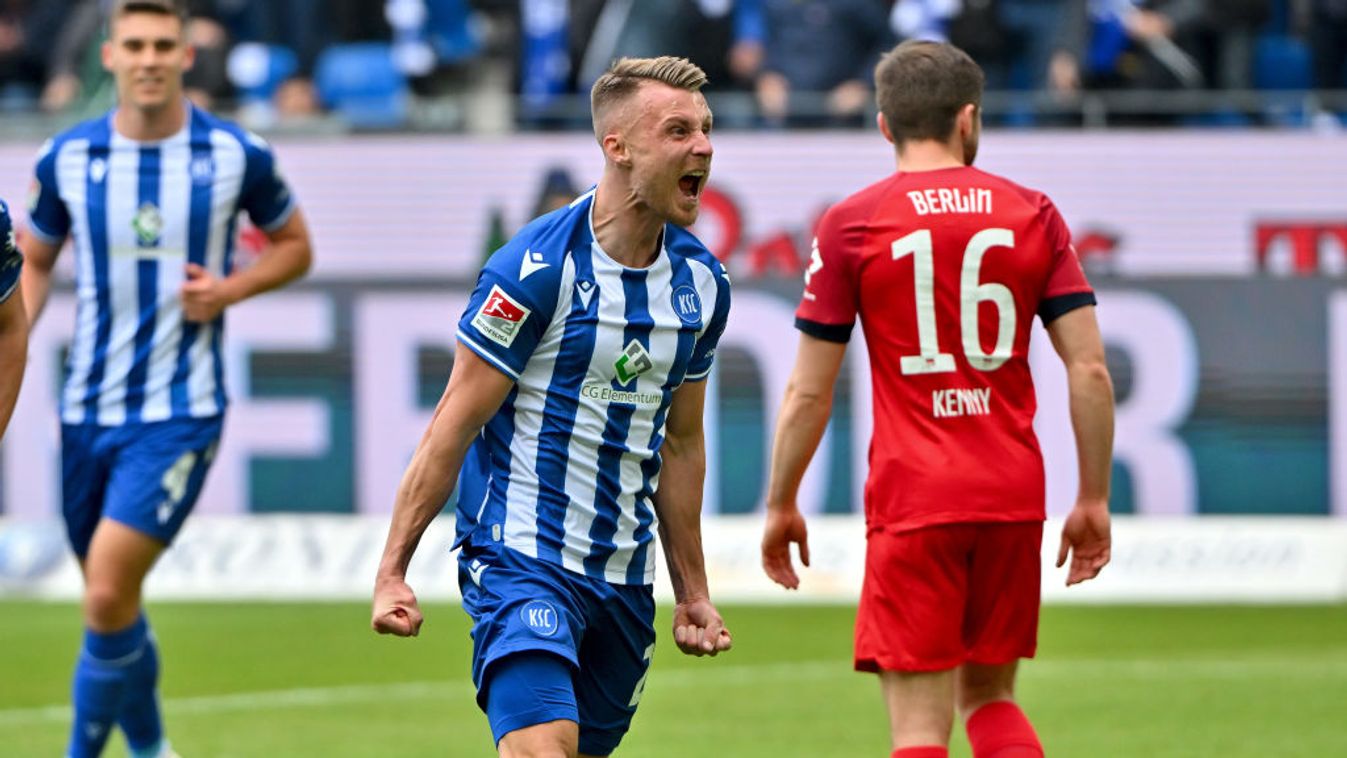
A Karlsruhe legyőzte és megelőzte a Herthát

Brutális baleset történt az M2-es autóúton Vácnál

Váratlan hír érkezett Putyinról

Megint lecsapott a Nyerő Páros átka, szakított a magyar műsorvezető és menyasszonya

Donáth Anna: Nem ez a cél, hogy egymás torkát kettéharapjuk + videó

Tegyél szivacsot a hűtőbe – meglepő hatással lesz a pénztárcádra!

Új üzemanyagárak: megtörte a kereskedőket a kormány fenyegetése – szerdától sokkal olcsóbb adják a dízelt

Olyan történt a Fradi csodacsapatával, ami idén még nem fordult elő

Óriási sportélmény és show lesz a kanadai hokiválogatott budapesti meccse - videó

A Külügyminisztérium reagált arra, hogy a Gazprom támogathatja-e a Ferencvárost

Jégkorong: 11 gólos meccsen győzelemmel melegített a magyar válogatott a vb-re



